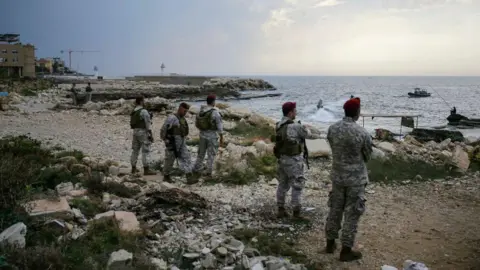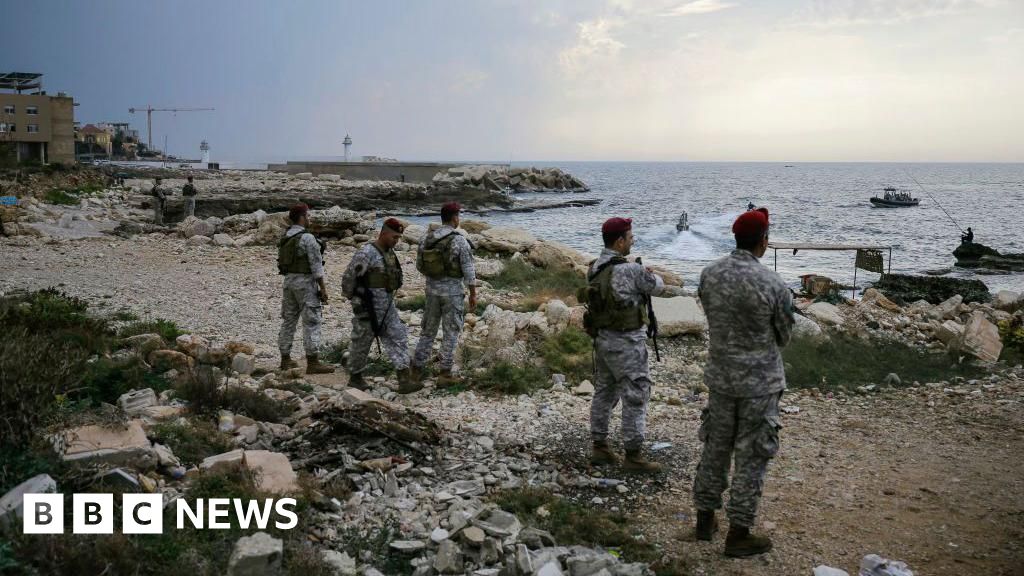 Getty Images
Getty ImagesThe Israeli military announced on Friday that a senior Hezbollah official had been captured in a naval raid in the northern Lebanese town of Batroun.
Officials said special forces arrested the man in what they called a “special operation” and brought him back to Israeli territory.
Lebanon’s state news agency said “unidentified troops” arrived on the beach at dawn, stormed a nearby building and detained one person before leaving in a speedboat.
The attack has angered Lebanese authorities, with Prime Minister Najib Mikati’s office saying he has instructed the Foreign Ministry to lodge a complaint with the United Nations Security Council.
He added that both the Lebanese army and UN peacekeeping force Unifil were investigating the attack, and that Mikati was seeking “swift” results.
Lebanese Transport Minister Ali Hamieh suggested the attack may have violated UN Security Council Resolution 1701, which aims to end hostilities following the 2006 Israel-Hezbollah conflict.
“If it is proven that the kidnapping was carried out by a naval landing, where will resolution 1701 be implemented?” he was quoted as saying by local media.
Hezbollah did not comment on Israel’s claims that the captured man was a member of the group, but Hamie told local media that the man was the captain of a civilian ship.
CCTV footage posted online, traced to Batron by the BBC, showed a group of soldiers herding prisoners between several buildings.
The Israeli military provided limited details about the operation, but said the forces involved were Shaetet 13, a maritime special forces unit that specializes in sea-to-land invasions.
The Christian town of Batroun, north of Beirut, has so far been relatively protected from Israeli military operations in Lebanon. Military operations were concentrated in southern Lebanon, the Bekaa Valley in the east, and the southern outskirts of Beirut.
More than 2,200 people have been killed in Lebanon since Israel launched its ground invasion into the country on September 30. The Israeli army announced that 38 soldiers were killed in Lebanon during this period.




